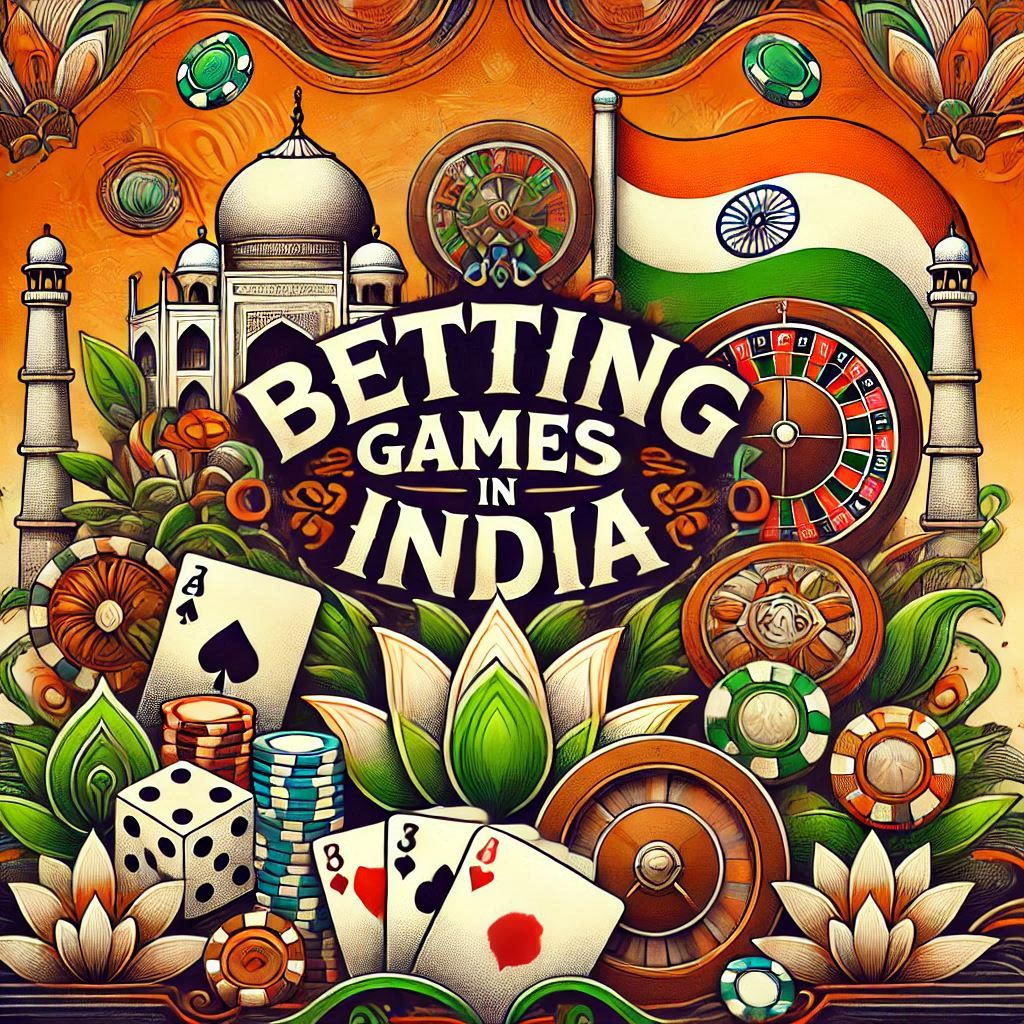Table of Contents
ToggleBetting Games in India: Exploring History, Legalities, and Emerging Trends

Introduction
Betting games have long been a fascinating element of Indian culture, intertwining tradition with thrill. From ancient times to the modern digital age, the allure of testing luck and skill in wagering has captured the imagination of millions. However, the betting industry operates under a complex legal framework, which varies across states and platforms. This article explores the multifaceted world of betting games in India, offering insights into their history, types, and implications.
Historical Context
Betting has roots in India’s rich cultural tapestry. Ancient texts such as the Mahabharata reference dice games, highlighting the longstanding intrigue of chance-based activities. Traditional games like cockfights and card games often served as social gatherings—an aspect that continues to influence modern betting culture.
Legal Status of Betting in India
The legal environment surrounding betting is multifaceted. The Public Gambling Act of 1867 prohibits most forms of gambling, but the regulation is largely state-specific. For instance, Goa and Sikkim have legalized casinos, while states like Maharashtra uphold stringent restrictions. Online betting occupies a gray area, with platforms leveraging offshore operations to attract Indian users.
Popular Betting Games in India
Teen Patti

A quintessential card game, Teen Patti, or “Three Cards,” is a favorite in Indian households and casinos alike. Its simplicity and strategic depth make it an evergreen choice for betting enthusiasts.
Rummy
Rummy’s versatility has earned it a spot among the most popular betting games. Variants like Points Rummy, Pool Rummy, and Deals Rummy add diversity, making it appealing to players of different skill levels.
Poker
Poker’s rise in India is fueled by the advent of online platforms and international tournaments. Skill and strategy dominate this game, making it a favorite among serious bettors.
Cricket Betting
The nation’s love for cricket fuels an extensive betting market, particularly during the IPL. Despite its popularity, cricket betting remains under strict legal scrutiny.
Horse Racing
One of the few forms of betting recognized as legal in India, horse racing combines tradition with high stakes. Its enduring appeal lies in the blend of skill and chance required to predict winners.
Online Casino Games
The digital era has brought a plethora of casino games to Indian users. Slots, roulette, and blackjack are now accessible at the tap of a button, broadening the horizons for betting enthusiasts.
Online Betting in India
Technology has revolutionized betting in India, with platforms offering seamless, secure, and engaging experiences. From fantasy sports apps to international betting websites, the options are endless. This growth is further bolstered by advancements in mobile technology and data accessibility.
Economic Impact of Betting
Betting contributes significantly to the economy through taxes and employment. In states where gambling is legalized, casinos and betting platforms generate substantial revenue. The industry also provides jobs in customer support, software development, and marketing.
Social Implications of Betting

While betting offers entertainment and economic benefits, it has societal repercussions. The stigma surrounding gambling persists, often fueled by concerns over addiction. Promoting responsible gaming is essential to mitigating these issues.
Emerging Trends in Betting Games
Fantasy sports leagues, led by platforms like Dream11, have emerged as a dominant trend. Esports betting and virtual reality (VR) experiences are gaining traction, promising immersive and innovative gaming environments.
Strategies for Success in Betting
Success in betting demands discipline. Effective risk management, a deep understanding of odds, and staying informed about game dynamics are crucial strategies. These practices help mitigate losses and enhance the gaming experience.
Ethics and Morality in Betting
The ethical debate surrounding betting revolves around its impact on individuals and society. While some view it as harmless entertainment, others highlight the potential for financial and psychological harm.
Government Initiatives and Regulations
The Indian government has taken measures to address illegal betting and promote responsible gambling. Awareness campaigns and stricter enforcement of laws aim to balance regulation and industry growth.
Future of Betting Games in India

With technological advancements and increasing acceptance, the betting industry in India is poised for significant growth. Innovations like blockchain for transparency and AI for personalized experiences will shape the future landscape.
Betting games in India represent a dynamic blend of tradition and innovation. As the industry evolves, striking a balance between regulation and growth will be key to unlocking its full potential. Whether you’re a casual player or a serious bettor, understanding the nuances of this world is crucial to making informed choices.
FAQs on Betting Games in India
Which betting games are most popular in India?
Teen Patti, Rummy, Poker, Cricket Betting, Horse Racing, and Online Casino Games are among the most popular betting games in India.
Is betting legal in India?
Betting laws in India vary by state. While some states like Goa and Sikkim allow regulated gambling, others enforce strict prohibitions. Legally, online betting frequently works in a gray area.
How can one engage in responsible betting?
Responsible betting involves setting a budget, understanding game dynamics, avoiding chasing losses, and knowing when to stop. Using licensed platforms is also crucial.
What are the risks associated with betting games?
Risks include financial losses, addiction, and legal consequences in states where betting is prohibited.It’s crucial to be mindful and cautious when betting.
What prospects do betting games in India have?
The future looks promising with the growth of online platforms, technological advancements, and increasing societal acceptance. However, stricter regulations may shape the industry’s evolution.
